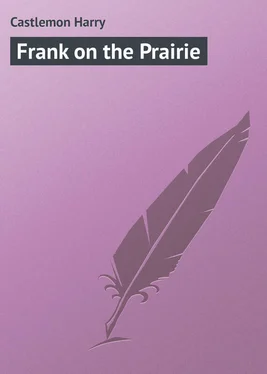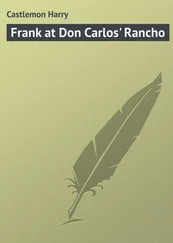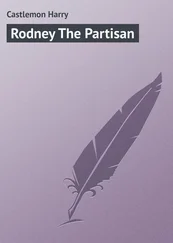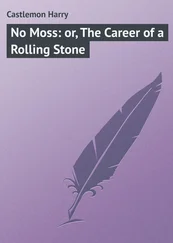Harry Castlemon - Frank on the Prairie
Здесь есть возможность читать онлайн «Harry Castlemon - Frank on the Prairie» — ознакомительный отрывок электронной книги совершенно бесплатно, а после прочтения отрывка купить полную версию. В некоторых случаях можно слушать аудио, скачать через торрент в формате fb2 и присутствует краткое содержание. ISBN: , Жанр: foreign_prose, foreign_children, на английском языке. Описание произведения, (предисловие) а так же отзывы посетителей доступны на портале библиотеки ЛибКат.
- Название:Frank on the Prairie
- Автор:
- Жанр:
- Год:неизвестен
- ISBN:http://www.gutenberg.org/ebooks/42101
- Рейтинг книги:5 / 5. Голосов: 1
-
Избранное:Добавить в избранное
- Отзывы:
-
Ваша оценка:
- 100
- 1
- 2
- 3
- 4
- 5
Frank on the Prairie: краткое содержание, описание и аннотация
Предлагаем к чтению аннотацию, описание, краткое содержание или предисловие (зависит от того, что написал сам автор книги «Frank on the Prairie»). Если вы не нашли необходимую информацию о книге — напишите в комментариях, мы постараемся отыскать её.
Frank on the Prairie — читать онлайн ознакомительный отрывок
Ниже представлен текст книги, разбитый по страницам. Система сохранения места последней прочитанной страницы, позволяет с удобством читать онлайн бесплатно книгу «Frank on the Prairie», без необходимости каждый раз заново искать на чём Вы остановились. Поставьте закладку, и сможете в любой момент перейти на страницу, на которой закончили чтение.
Интервал:
Закладка:
It may be readily supposed that such conversation as this was not calculated to quiet the feelings of Frank and Archie – who had been considerably agitated by the information that there was a body of hostile Indians at no great distance – and to their excited imaginations the danger appeared tenfold worse than it really was. At that day, as the trapper had remarked, it was a very uncommon occurrence for a large train to be engaged in a regular fight with the Indians, for the latter had learned to their cost that the pioneers were always well armed, and that there were some among them who understood Indian fighting. They generally contented themselves with sudden and rapid raids upon the stock of the emigrants, and they seldom departed empty-handed. But it is not to be wondered that the trappers, who had participated in numberless engagements with the savages, and witnessed deeds of cruelty that had awakened in them a desire for vengeance, should delight to talk over their experience. The boys, although considerably frightened, were still greatly encouraged by their example. Dick twisted uneasily on his seat, as though impatient for the fight to begin, now and then looking toward the spy, as if he had half a mind to venture a shot at him; while old Bob Kelly rode along, smoking his pipe, apparently as unconcerned as though there was not a hostile Indian within a hundred miles of them. Mr. Winters evidently partook of the old man’s indifference, for, after satisfying himself that his weapons were in readiness, he drew back beside his nephews, and said, with a smile:
“Well, boys, you may have an opportunity to try your skill on big game now. This will be a little different from the fight you had in the woods with those Indians who stole your traps. Then you had the force on your side; now the savages are the stronger party. But there’s no danger,” he added, quickly seeing that the boys looked rather anxious; “every man in the train is a good shot, and the most of them have been in Indian fights before. I don’t believe all the red-skins on the prairie could whip us while we have Dick and Bob with us.”
The boys themselves had great confidence in the trappers – especially Dick, who, they knew, would never desert them. But even he had several times been worsted by the Indians. Frank thought of the story of the lost wagon train. But then he remembered that the reason that train was captured, was because the emigrants had not “stood up to the mark like men.”
All this while the train had been moving ahead at a rapid pace, and many an anxious eye was directed toward the solitary Indian, who remained standing where he was first discovered until the wagons had passed, when he suddenly and mysteriously disappeared. All that day the emigrants rode with their weapons in their hands, in readiness to repel an attack; and when they halted at noon, guards were posted about the camp, and the cattle were kept close to the wagons. But, although now and then a single Indian would be seen upon one of the distant swells, the main body kept out of sight; and the boys began to hope that the train was considered too large to be successfully attacked. At night old Bob Kelly selected the place for the encampment, which was made according to his directions. The wagons were drawn up in a circle to form a breastwork, and the cattle were picketed close by under the protection of a strong guard. Fires were built, and preparations for supper carried on as usual, for, of course, all attempts at concealment would have been time and labor thrown away. As soon as it began to grow dark, the cattle were secured to the wagons by long stout ropes, which, while they allowed the animals to graze, effectually prevented escape. Then guards were selected, and the emigrants made every preparation to give the savages a warm reception, in case they should make a dash upon the camp. No one thought of his blanket. The idea of going to sleep while a band of Indians was hovering about, watching their opportunity to pounce down upon them, was out of the question. The two trappers, after satisfying themselves that every thing was in readiness for an attack, began to station the guards. Frank again thought of the story Dick had related of the lost wagon train, and, desiring to witness an exhibition of the skill that had enabled him to detect the presence of the Indians on that occasion, proposed to Archie that they should stand guard with him. The latter, who always felt safe when in the company of their guide, agreed; and when the trapper started off with the guards, he was surprised to find the boys at his side.
“Whar are you goin’?” he asked.
“We want to stand guard with you!” replied Frank.
“Wal, I never did see sich keerless fellers as you be,” said the trapper. “You get wusser an’ wusser. Much you don’t know about this bisness. I guess you had better stay here whar you’re safe.”
“Wal, wal!” said old Bob Kelly, who was not a little astonished at the request the boys had made, “they’ve got the real grit in ’em, that’s a fact, if they are green as punkins in Injun fightin’. A few year on the prairy would make ’em as good as me or you, Dick Lewis. But you’ll get enough of Injuns afore you see daylight ag’in, youngsters. So you had better stay here.”
So saying he shouldered his rifle, and, followed by the guards, disappeared in the darkness. The boys reluctantly returned to their wagon, where they found Uncle James, seated on the ground, whistling softly to himself, and apparently indifferent as to the course the Indians might see fit to adopt. But still he had not neglected to make preparations to receive them, for his rifle stood leaning against one of the wheels of the wagon, and he carried his revolvers in his belt. The boys silently seated themselves on the ground beside him, and awaited the issue of events with their feelings worked up to the highest pitch of excitement. The fires had burned low, but still there was light sufficient to enable them to discover the emigrants stretched on the ground about the wagons, talking to one another in whispers, as if almost afraid to break the stillness that brooded over the camp, and which was interrupted only by the barking of the prairie wolves, and the neighing and tramping of the horses. Two hours were passed in this way, when suddenly the sharp report of a rifle, accompanied by a terrific yell, rang out on the air, causing the emigrants to grasp their weapons and spring to their feet in alarm. For an instant all was silent again. The stillness was so deep that Frank thought the camp was suddenly deserted. Then a long drawn out whoop arose from the prairie, followed by a chorus of yells that struck terror to more than one heart in that wagon train. Then came a clatter of horses’ hoofs; the yells grew louder and louder; and the boys knew that the Indians were coming toward them. The emigrants rushed to the wagons, and the next moment the savages swept by. The boys saw a confused mass of rapidly-moving horsemen; heard the most terrific yells, the report of fire-arms, and the struggles of the frightened cattle as they attempted to escape, and then all was over. The Indians departed as rapidly as they had come, and the boys, bewildered by the noise, had not fired a shot. On the contrary, they stood holding their rifles in their hands, as if they had suddenly forgotten how to use them. Uncle James, however, was not confused. He had heard the war-whoop before, and as he came out from behind the wagon, he began to reload one of his revolvers, remarking as he did so:
“There are some less in that band, I know.”
“Did you shoot?” asked Archie, drawing a long breath of relief to know that the danger was past. “Why, I didn’t have time to fire a shot.”
Конец ознакомительного фрагмента.
Интервал:
Закладка:
Похожие книги на «Frank on the Prairie»
Представляем Вашему вниманию похожие книги на «Frank on the Prairie» списком для выбора. Мы отобрали схожую по названию и смыслу литературу в надежде предоставить читателям больше вариантов отыскать новые, интересные, ещё непрочитанные произведения.
Обсуждение, отзывы о книге «Frank on the Prairie» и просто собственные мнения читателей. Оставьте ваши комментарии, напишите, что Вы думаете о произведении, его смысле или главных героях. Укажите что конкретно понравилось, а что нет, и почему Вы так считаете.












